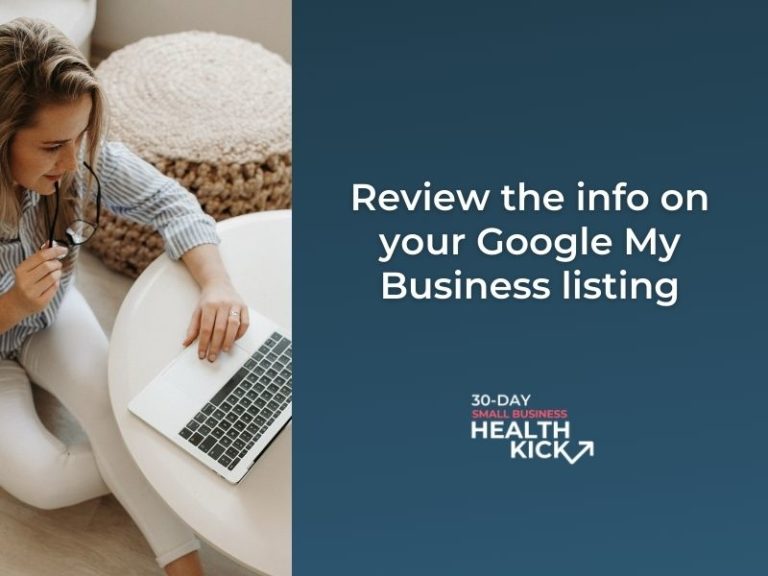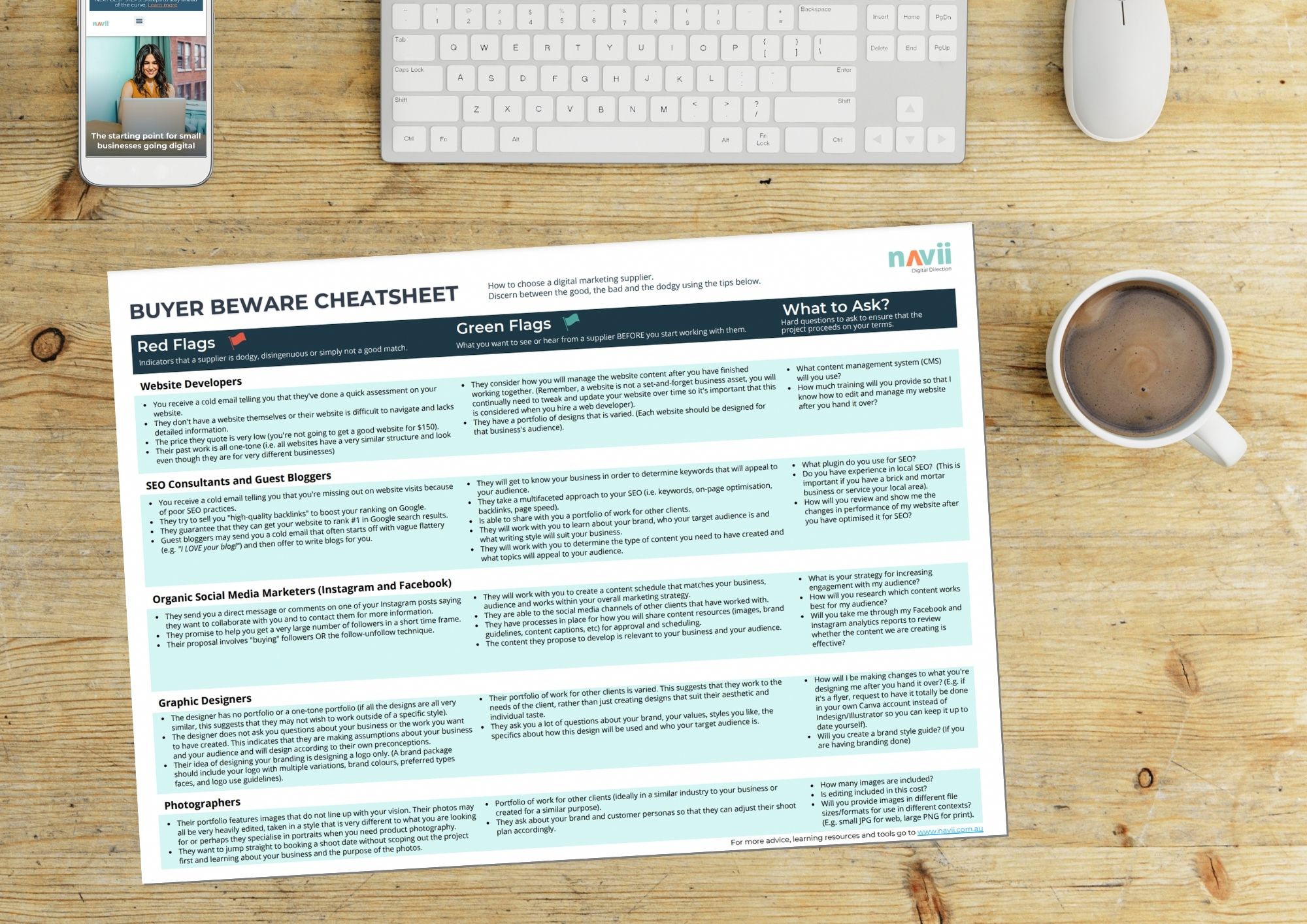Your Google My Business listing is a powerful and free digital asset for your business and should be given an adequate amount of attention to ensure that it is performing well for your business. Your position in Google’s local search results (only 3 are shown by default, called the ‘3-pack’) is influenced by a number of factors. This article will take you through the key aspects of a Google My Business (GMB) listing and how they affect your ranking in local search results.
The factors that influence your rank in Google
According to Google, there are three factors that determine a businesses rank in local search results:
- Relevance
The degree to which a local Business Profile matches what someone is looking for. Google decides relevance based on the information they have about all the potential businesses – this includes information on your Google My Business listing and website. - Distance
How far away potential businesses are from the location term that is used in a search (e.g. “hairdressers Melbourne”). If no location is provided in the search query, Google will calculate distance based on the information they have about the user’s location. - Prominence
How well known a business is. If a place or business is generally well-known (such as a landmark, famous hotel or popular store) they are more likely to rank higher in search results.
Prominence is also determined by the information Google has about a business from other online sources, such as links, articles, and directories. The number of Google reviews and the average rating are taken into account when ranking for local searches. More positive reviews and ratings can help your company’s local position. Your position in search results is also important here, so you need to ensure search engine optimisation (SEO) has been performed on your website.
As a small business owner, you can influence the relevance factor by ensuring that all the key information you have on your Google listing is accurate and that you have completed all of the available fields. This will give Google more data to work with and determine whether you are a suitable candidate to display in search results.
When it comes to the distance factor, you of course cannot control the location that people are searching for/in. However, you can ensure that your address is accurate and is the same on your website, your Google listing, your Facebook page and anywhere else you appear online. You can also verify your location.
Actively encouraging your customers to leave reviews and taking the time to respond to each one will not go unnoticed by Google’s ranking algorithm and may help you compete with the big names for prominence. It’s important to consider the SEO of your website in order to influence this factor as well.
Updating your Google My Business listing
Depending on what industry you are in and the category that your business falls under will influence the fields that appear in your Google My Business listing. For example, a restaurant will have the option to link to their menu from their listing. However, there are some standard inclusions on a Google My Business listing that all businesses must have, we have listed them below:
- Claim your listing
- Business name
Make sure your business name is the same everywhere online (e.g. if your Google listing says ‘PC Tyre Centre’, your Facebook page says ‘P.C. Tyre Centre’ and your website says ‘PC Tyres’ you need to choose one and update the rest to match) - Address
- Service area
- Phone number
- Hours
These might be your physical opening hours or your contactable hours, you can also add ‘more’ hours for special services and ‘special’ hours for specific days (such as public holidays) - Website
- Description
Don’t forget to include your unique selling proposition - Category
You can add a primary category as well as additional categories - Logo
Use a square image of your logo, bearing in mind that it will be cropped into a circular frame - Cover photo
This is the main photo that will appear on your listing at the top left (see screenshot below). If you do not upload a photo of your own Google will use the Google street-view image from your address instead. - Additional photos of your premises, services and/or products
Aim for 10+ photos. Remember that your customers have the ability to upload photos that they have taken of your business so you want to have enough of your high-quality images to ensure your business is portrayed in its best light. - Posts
These are also sometimes referred to as Updates and are short social-media style pieces of content that appear on your listing for 7 days. Posts are great for sharing blog content, COVID updates, sales and other important information.
An un-optimised Google My Business listing versus an optimised listing
The two businesses below are competitors in the same area and as you can see are at opposite ends of the Google listing optimisation spectrum.
The listing on the left has had no information added except for the address and phone number. It is likely that this listing has not actually been claimed by the business yet.
On the other hand, the listing on the right has filled in just about every single field that has been made available to them including their COVID-19 policy. One recommendation we would make to this business owner would be to add a couple of their most frequently asked questions to the Q&A section.
Another great thing about this listing is that the business takes time to write thoughtful responses to all of their reviews (see example further down). And finally, they are making use of the ‘Posts’ function (also referred to as Updates) on Google My Business and sharing information regarding their operating status in responses to COVID lockdowns as well as sharing more information about their business and services.
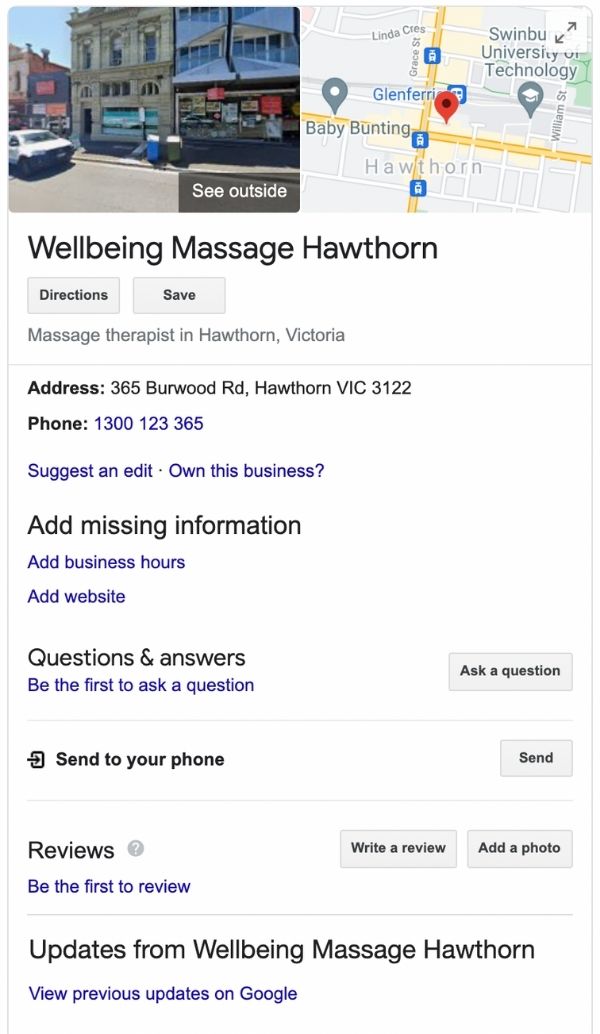
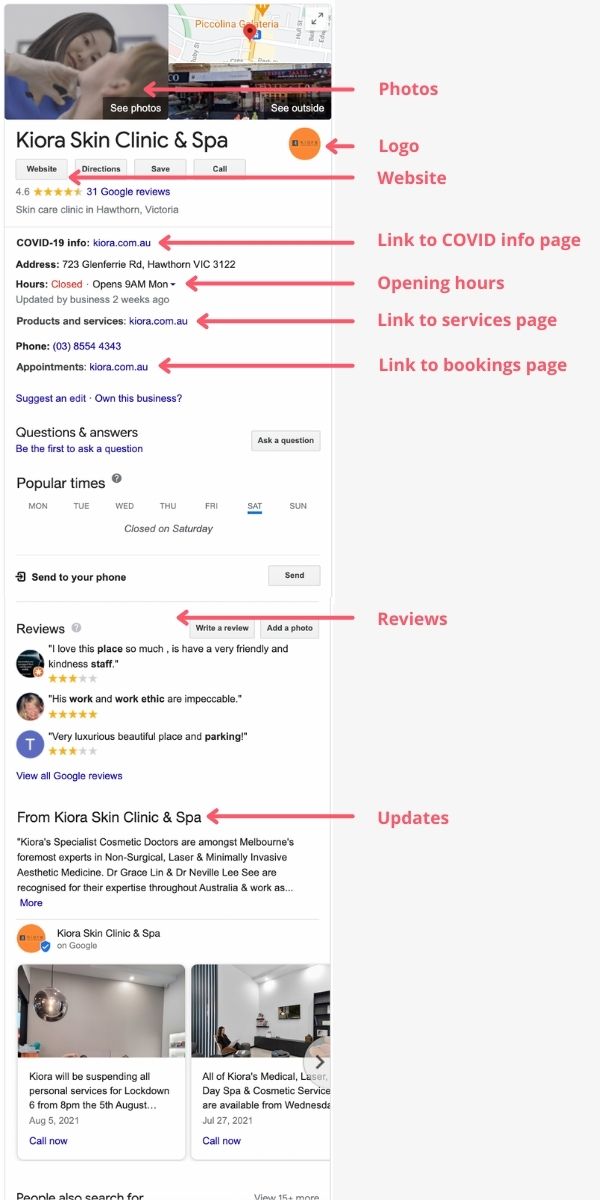
Gathering reviews and responding to them
We’ve talked at length before about how important it is to gather reviews and respond to every single one so we won’t labour on this point too much here.
What we will say is that the most important thing to keep in mind when it comes to writing review responses is that your words are addressing not only the reviewer, but also every person who comes to your Google listing trying to gather information about your business. You risk ruining your first shot at making a positive impression if you don’t monitor and reply to online reviews in a thoughtful and timely manner. If you’re not sure how to view your reviews and write a response you can view Google’s help article here.
Below is an example of a great review response on Google.
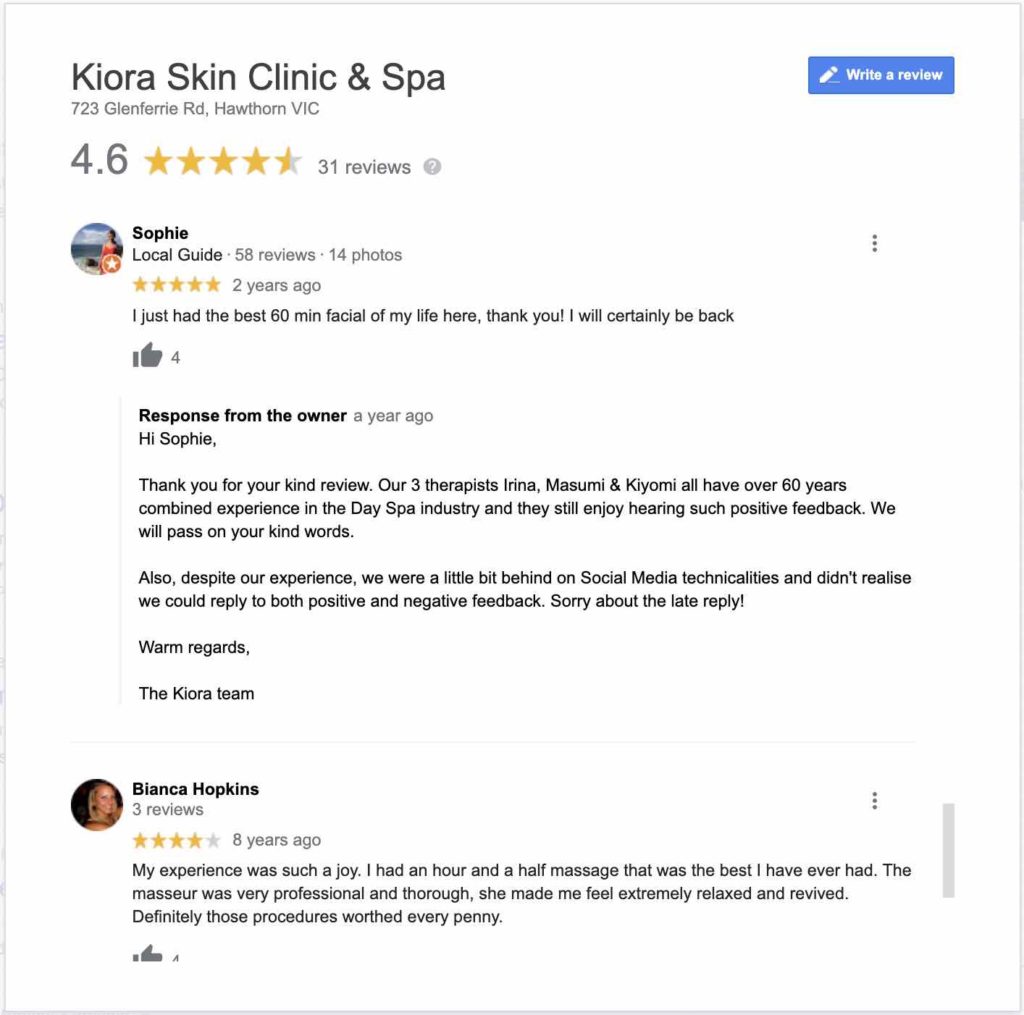
In summary
Having a well-managed Google My Business listing is amazing for exposing your business to more potential customers and making a great first impression. An easy way to stay on top of your Google My Business listing and your Google reviews is to download the mobile app which is available for free.
Let us know in the comments if after completing this exercise you found that there were parts of your Google listing that needed attention! For more advice on how to improve your search ranking, website SEO and your online presence as a whole, you can check out Next Best Steps, our free 5-day challenge that will help you to determine the next digital step for your business.

